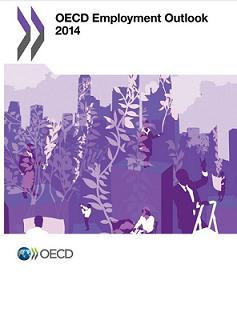Kirkegaard, F. J. (2014) “The ECB Throws down the Gauntlet“, The Peterson Institute for International Economics, 05 Σεπτεμβρίου. The European Central Bank (ECB) surprised financial markets on September 4 by announcing an interest rate cut of 10 basis points, a new program to purchase asset-backed securities (ABS) in the nonfinancial sector, and another round of purchases of covered bank bonds. The ECB was responding not only to the recent …Read More
Europe’s Center of Power Shifts East
Bershidsky, L. (2014) “Europe’s Center of Power Shifts East“, Bloomberg Views, 04 Σεπτεμβρίου. As Jean-Claude Juncker assumes its presidency, the European Commission — Europe’s de-facto government — will ostensibly be run by representatives of the bloc’s newest, post-Communist members, but there will no longer be a commissioner for EU expansion. Europe needs time to heal, consolidate and reorient itself politically and economically. The reorientation appears to be along unfashionably …Read More
Which factors shape the relationship between manufacturing and government wages?
Marzinotto, Β. & Turrini, Α. (2014) “Which factors shape the relationship between manufacturing and government wages?“, VoxEU Organisation, 05 Σεπτεμβρίου. The link between public- and private-sector compensation has important implications for the labour market and price competitiveness. This column reports that manufacturing and government wages co-move both in the long and short run, but that the long-run co-movement is much stronger where the government is an important employer. This …Read More
The discontented members of the Eurozone should consider very seriously the creation of a second euro
Melitz, J. (2014) “The discontented members of the Eurozone should consider very seriously the creation of a second euro“, LSE EUROPP Blog, 04 Σεπτεμβρίου. Since the height of the Eurozone crisis, a number of reforms have been pursued to stabilise the economic situation in states using the single currency. In an interview with EUROPP’s editor Stuart Brown, Jacques Melitz outlines why the Eurozone is still suffering from two key …Read More
An Investment New Deal for Europe
Derviş, Κ. & Saraceno, F. (2014) “An Investment New Deal for Europe“, Brookings Blog, 03 Σεπτεμβρίου. Six years into the crisis, the eurozone remains the sick man of the world economy. Its GDP today is barely at the pre-crisis level, deflation looms and the difference between the healthier core and a struggling periphery is not resolved. Moreover, even Germany may be slowing down, and Finland is in persistent recession. …Read More
Investing for Europe’s Future
Szczurek, M. (2014) “Investing for Europe’s Future“, VoxEU Organisation, 05 Σεπτεμβρίου. The ‘lost decade’ is not a scenario for the EU, it’s the baseline forecast. In this column, Polish Finance Minister Mateusz Szczurek calls for an EU-wide public investment programme of 5.5% of GDP to overcome the constraints behind Europe’s ‘secular stagnation’. He calculates that €700 billion of capital expenditures could close the output gap in the short term …Read More
The political economy of regional policy and industrial location
Wiberg, Μ. (2014) “The political economy of regional policy and industrial location“, VoxEU Organisation, 03 Σεπτεμβρίου. Regional policy is a primary expenditure item for many countries. A substantial share of the regional policy budget is allocated to firms in poor regions. This column argues that electoral concerns and rent-seeking behaviour bias regional policy in favour of smaller regions. However, this bias lowers total welfare. The EU spends €130 billion …Read More
Forget the dodgy numbers: Leaving the EU makes economic sense
Leach, G. (2014) “Forget the dodgy numbers: Leaving the EU makes economic sense“, City A.M. free daily business newspaper, 28 Μαΐου. UKIP’S recent electoral triumph has reignited debate about the cost of Britain’s place in the EU. But what do we know about the economics of our membership? Let’s start from the beginning: we’ll find that Brexit has long made economic sense. Prior to joining the then Common Market …Read More
OECD Employment Outlook 2014 – Editorial
OECD (2014) OECD Employment Outlook 2014 – Editorial, OECD Publishing. Both more and better jobs are needed for an inclusive recovery from the crisis More and better jobs are needed to lower unemployment and improve well-being Despite recent improvements, further progress in labour market conditions remains largely dependent upon a broader and sustained economic recovery. Although unemployment has declined in response to renewed job creation, large job gaps remain …Read More
Greece seeks tax cut from troika after years of belt-tightening
Hope, Κ. (2014) “Greece seeks tax cut from troika after years of belt-tightening“, Financial Times, 01 Σεπτεμβρίου. Greece is seeking to persuade its international creditors that it is entitled to a 2015 tax cut after years of wrenching austerity since the country is now on track to outperform its fiscal targets by a comfortable margin this year. Gikas Hardouvelis, a technocrat who took over in July as finance minister, …Read More








